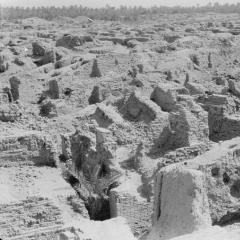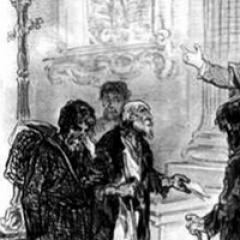The competition is our heritage. Ovio "our heritage". municipal tour. Brief description of the Olympiad competitions
1. The main components of the Olympiad
1.1. Competitive
The Olympiad consists of 10 competitions for memory, erudition and speed of thinking.
1.2. Thematic
1. Some of the tasks of the Olympiad are related to a single theme. Special research and project assignments are also being developed on this topic.
2. Individual and team competitions
The results of all participants in the Olympiad are taken into account in both team and individual competitions.
3. Accessibility of the Olympiad for all students
Children from grades 2 to 11 can take part in the Olympiad different levels preparation.
Organizers of the Olympiad
Brief description of the Olympiad competitions
The program of the final stage of the intellectual Olympiad includes 3 blocks of competition with 3 tasks each, a brain ring, and special tasks.
At the school and regional level, the Olympiad is held in a shortened version
- Olympiad for high school (grades 5-7)
- Olympics in high school takes place according to the same rules as in the senior one, with the exception of a reduced volume of tasks and the exclusion of “puzzles” in the finals of the competition.
- The Olympiad in high school takes place in two stages:
- Olympics for primary school
The Olympiad in high school follows similar rules, with the exception of a reduced volume of tasks and the exclusion of “puzzle” and “crossword” competitions. Date tasks are replaced by “examples” tasks.
Examples
Task: remember in the table (8 rows and 4 columns) the lines with arithmetic examples or answers to them, then reproduce the answer or the example itself in the appropriate cell.
Rules
- time to memorize - 2 minutes, time to fill - 3 minutes.
- Task sheet: participants are given a table with examples (8 rows and 4 columns). After 2 minutes, the assignment sheet is taken away.
- Answer Sheet: Participants must fill out the table by writing the answer or the example itself in the blank cells.
Scoring
- for each correct line - 4 points. For a line with one error - 1 point. More than one mistake – about points.
- The maximum number of points is 32.
The Olympiad in primary school takes place in two stages
- School tour
- Regional all-Russian tour
From October 1, registration of regional tour organizers begins on the website http://ovio.pravolimp.ru. Any school that has invited at least 4 other schools to join the tour can act as a regional organizer.
The team composition for the regional tour is 5 people from grades 3-4, provided that at least two people in the team are in grade 3 or younger.
The regional tour date is the first weekend after October 14th. Upon completion of the regional round, its organizers must send the results to the organizing committee within 3 days.
Based on the results sent, a consolidated all-Russian rating is compiled.
Methodology for holding the Olympiad in schools
1. Age of participants
The optimal age for participants in the Olympiad is from grades 5 to 10. For elementary school, assignments should be adapted. It is possible for strong 4th graders to participate in the Olympiad. 11th graders, as a rule, are already focused on entering universities, and participation in the Olympiad is not so interesting for them.
2. Composition of participants
The experience of holding Olympiads has shown that it is inappropriate for all school students to participate in the Olympiad. Guys who are not interested in the Olympiad interfere with others and spend all their energy on cheating, distorting the final results. The optimal participation seems to be the participation of national teams of 6 people from each class; if there is a large number of people interested, several teams from the class can be formed. If there are no participants for a new team, those wishing to participate in the Olympiad can test their strength in the individual competition.
3. Time and place of the competition
It is better to hold the Olympiad simultaneously among all participants during any lesson or immediately after lessons.
Form of implementation: as a test.
4. Dates
From September 21 to October 14, schools can host intellectual Olympiad competitions to determine the best and form a school team, as well as organize a school-wide educational and cognitive event.
When holding the Olympiad on September 21, schools have the opportunity to transfer the results of their participants to a single all-Russian coordination center for inclusion in the consolidated register.
5. Students of 11th grade (as part of popular self-government programs in schools).
Hurry! Registration and holding of the school tour of the Open All-Russian Intellectual Olympiad of the Olympiad “Our Heritage” 2016-2017 has begun http://ovio.pravolimp.ru/
Currently, there are many different subject Olympiads. The Open All-Russian Intellectual Olympiad (OVIO) “Our Heritage” was created as an interdisciplinary Olympiad aimed at identifying gifted children, regardless of the area of their special subject talents. The tasks, divided into various blocks, allow children to demonstrate their abilities in the speed and quality of memorization, erudition, speed of thinking when solving logical problems and analyzing texts.
It is important to note that for each Olympiad, the task of the erudition block and the project tasks accompanying the Olympiad are selected every year. historical theme. And after its completion, all participants of the Olympiad find themselves enriched with new knowledge. The topic is announced in advance, and all participants have equal opportunities to prepare.
The school tour of the OVIO Olympiad for grades 5-11 started on September 1 and will end on September 30. The final for grades 8-11 will take place in St. Petersburg on February 23-25!
about the project
Brief information note
Goals and objectives of the intellectual Olympiad
Studying national history and culture;
development project work and expansion of the methodological and content base of intellectual competitions;
unification of youth in the study and preservation of national cultural heritage;
familiarity with the principles of fair play;
creating conditions to support gifted children;
improving the pedagogical qualifications of teachers, graduate students, students, and researchers taking part in the Olympiad.
Main characteristics of the Olympiad
1. The main components of the Olympiad
1.1. Competitive
The Olympics consists of competitions for memory, erudition and speed of thinking.
1.2. Thematic
Some of the tasks of the Olympiad are related to a single theme. Special research and project assignments are also offered on this topic.
2. Individual and team competitions
The results of all participants in the Olympiad are simultaneously taken into account in the team and individual competitions.
3. Accessibility of the Olympiad for all students
Children of different ages (from 1st to 11th grade) and levels of training can take part in the Olympiad.
4. Olympiad for primary school students
Based on those adapted for junior schoolchildren intellectual tasks for high school students, plus additional competitions.
5. Tour for preschoolers
Organizers of the Olympiad
Orthodox St. Tikhon's Humanities University(http://pstgu.ru)
Methodical group All-Russian Olympiad on Basics Orthodox culture(http://www.pravolimp.ru)
META Foundation for Education (http://www.fpmeta.org)
informal all-Russian community of students, graduates and teachers “Keepers of Origins”.
Regulations, regulations, schedule of tours, teaching materials for preparation for the Olympiad - posted on the website http://ovio.pravolimp.ru/
add a video from the site
22.12.2016Open All-Russian Intellectual Olympiad “Our Heritage” is the largest and most prestigious Olympiad in the Russian Federation for primary schools. The only Olympiad for this age category, included in the list of Olympiads approved by the Ministry of Education of the Russian Federation. The only multi-stage Olympiad, which includes school, municipal, regional and final rounds.
The theme of the OVIO Olympiad “Our Heritage” for primary schools in 2016/17 is “Professions”. The Olympiad is held in three age categories – 1st grade, 2nd grade, 3-4 grades.
For 1st grade students, the 2016/17 Olympiad is held in one stage based on their educational institutions. On the website you can view archives of assignments from previous years.
From the 2nd grade, very serious competitions begin with final all-Russian finals: for 2nd grades in Moscow, for 3-4th grades in Volgograd.
This year's school tour assignments are somewhat different from last year's. In addition to the main competitions (“Test”, “Logic”), the possibility of holding three additional ones (“Matching”, “Word”, “Reading”) has been added. Holding additional competitions is certainly useful for all students and will help to better select the strongest to participate in the next round.
Since 2006, the Orthodox St. Tikhon's University for the Humanities has been implementing an educational program of subject
olympiads and creative competitions for students of state, municipal and non-state institutions of general secondary education. The program is aimed at identifying talented and gifted schoolchildren and supporting them in the future professional development and spiritual and moral development.
- All-Russian Olympiad for schoolchildren on the Fundamentals of Orthodox Culture “Holy Rus', Keep the Orthodox Faith!” (OPK)
- ABOUT open V Serossiyskaya And intellectual O Lympiad "Our Heritage" (OVIO)
- Multidisciplinary subject Olympiad of PSTGU "Axios" (Axios)
Well, since I have long developed the habit of always having a camera at hand, I was able to capture the moments of the school tour.

It will be very interesting for moms and dads to see which tasks were easy for children, and which ones took longer to think about. Here is a useful link from the above site.
So, the finalists have been determined, and now the students are participants in the municipal qualifying round, which will take place within the walls of 31 schools. Who arrived how: with parents, with teachers, they came themselves, because they study at the same school. Waiting for the instruction to start, we all gather in the assembly hall. There are a lot of guys, more than two hundred. Elena Aleksandrovna Goferber, leading specialist, takes the floor in front of the audience MKU KNMC Krasnodar talks about the regulations and forms groups that take the teachers of 31 schools with them into the offices, seating the children at their desks one at a time. A prerequisite is that students from the same school should not meet in the same classroom. Pen, pencil, concentration - These are the main assistants of young students! All the adults wished their daughters, grandchildren, and sons success. The doors closed and work began. On Wednesday, we, the school teachers-organizers, will know all the scores of our students. Elena Aleksandrovna told the parents everything in the assembly hall. All the best to you, readers!



